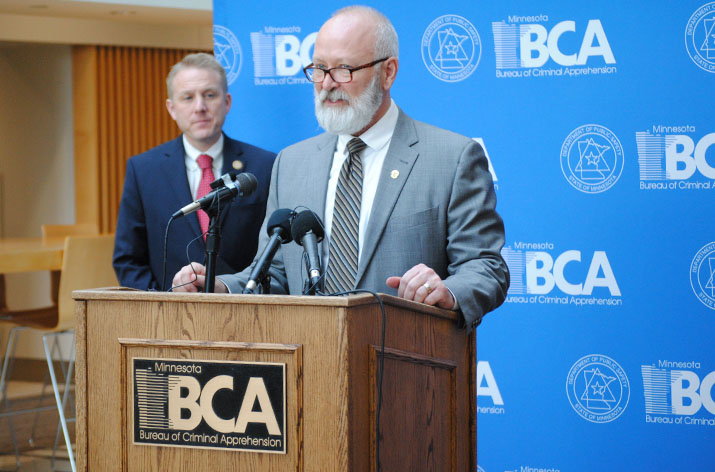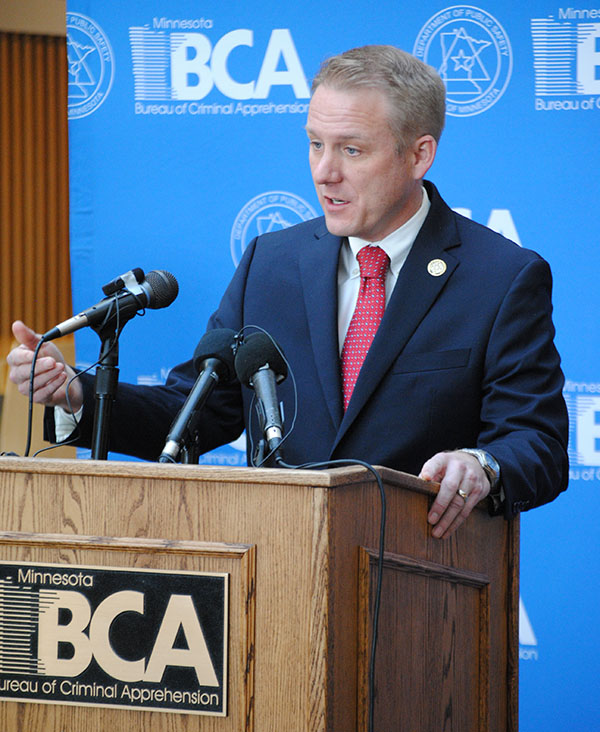BCA: Parents, talk to your kids to protect against financial sextortion
Feb. 8, 2023
 It's a parent's worst nightmare: A few weeks ago, a Minnesota mom watched her son walk into the room and tell her his life was over.
It's a parent's worst nightmare: A few weeks ago, a Minnesota mom watched her son walk into the room and tell her his life was over.
“He was so scared and, I think, shocked by the whole thing that he couldn't get the words out. After a few minutes, he was able to tell us that he was being threatened on social media," said the mother, who we are not naming to protect the identity of her son.
The teenage boy had gotten a message on Instagram from someone claiming to be a teenage girl. They messaged back and forth, talking and flirting, then she asked him to take pictures of himself that were sexually explicit and included his face.
Once the perpetrator received the photos, the conversation's tone changed drastically, going from friendly to threatening in the blink of an eye. She asked for $400, saying if the boy didn't pay, his photos would be posted online and shared with his friends.
“They made it very clear that they could ruin his life and had no issue doing that," his mom told us.
He went to his parents for help. They connected with an agent in our Bureau of Criminal Apprehension (BCA), who immediately began investigating. Watch the
video here to hear the full story.
We're asking parents to have some difficult conversations with your kids to prevent this scenario from playing out within your families. Parents and caregivers are the first line of defense when a child is online. We need you to talk with them about being safe, especially when meeting new people and sharing images and videos.
“As a parent and a grandparent, I know it can be awkward to talk to your children about sex," said Department of Public Safety Commissioner Bob Jacobson. “If you need help starting that conversation, there are resources available. Having a frank and honest talk with your child could be the difference. This is happening to Minnesota families and the consequences can be deadly."
Financial sextortion is a growing issue affecting children and families in our state and around the country. Sextortion happens when someone tricks a person into sending them explicit photos then demands something in return for not sharing the photos. The extortionist often demands more pictures, videos, or meetings for sex acts or money. The recent rise in cases has primarily been financial sextortion – simple blackmail.
Law enforcement nationwide received more than 7,000 reports related to online financial sextortion involving children in 2022, according to the FBI. Tragically, more than a dozen children committed suicide because they felt there was no way out from the sextortion scheme. FBI data shows a large portion of these cases originate outside the U.S., primarily in West African countries. That makes these cases extremely difficult to investigate or prosecute. Prevention is the best way to keep children safe.

“We need parents and trusted adults to have ongoing, open lines of communication with the children in their lives," said BCA Superintendent Drew Evans. “A child needs to know they have somewhere to turn. If you believe a child has been victimized, please let them know they haven't done anything wrong and they can come to you if this or something like it happens to them. They are not in trouble, they are not alone, and there is help available."
The
National Center for Missing and Exploited Children (NCMEC) has outlined steps parents and caregivers can take if their child falls victim to a sextortion scheme:
Get help before deciding to pay. Cooperating with the demands rarely stops the extortion or harassment.
Report the predator's account via the platform's safety feature.
Block the predator but do not delete the profile or messages because they could be useful to law enforcement.
NCMEC can help you get the images off the internet if they were posted.
More resources can be found on
the FBI website and
Safe Harbor Regional Navigators. The Suicide Crisis Line is also available by calling 988 or visiting
988lifeline.org.

